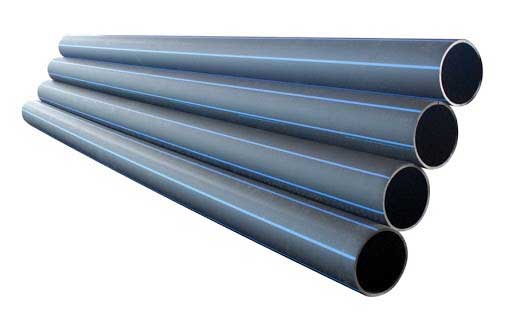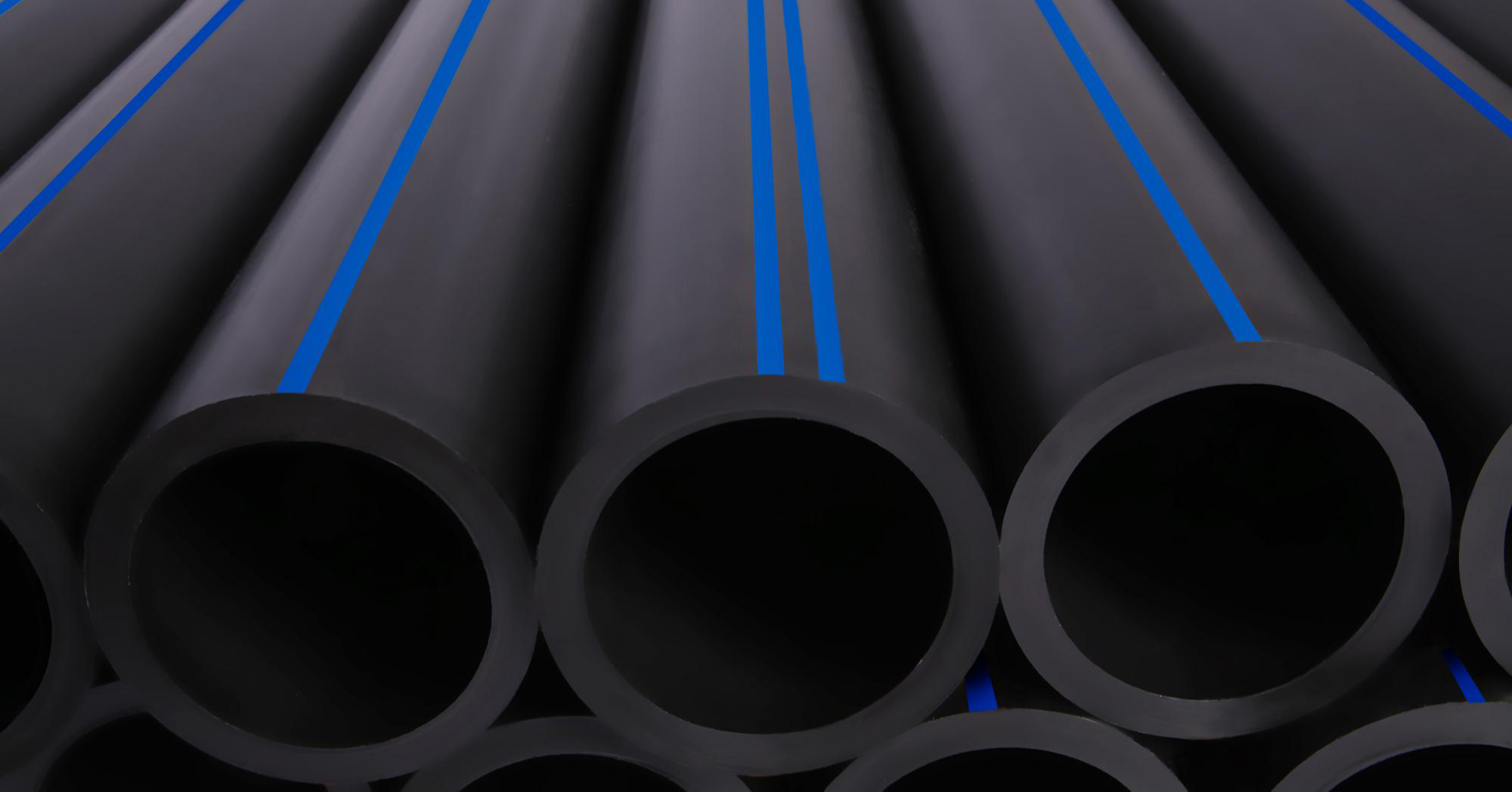A Comprehensive Guide to the Numerous Uses HDPE Pipe in Building and Market
HDPE pipes have actually become an essential part in modern-day construction and industrial applications. Their one-of-a-kind homes, such as resistance to corrosion and lightweight design, make them suitable for a variety of uses. From water system systems to farming irrigation, HDPE pipelines offer options that enhance effectiveness and sustainability. Comprehending their diverse applications is necessary for professionals aiming to maximize framework. What certain advantages do these pipelines give each field?
Water and Circulation Equipments
Water system and distribution systems are vital parts of metropolitan facilities, typically counting on high-density polyethylene (HDPE) pipes for their resilience and effectiveness. These systems transport drinkable water from therapy facilities to customers, making sure accessibility and safety and security. HDPE pipelines are preferred for their resistance to rust, chemicals, and severe temperatures, which enhances their durability and lowers maintenance prices. Furthermore, their lightweight nature permits for much easier setup and transport, making them optimal for various urban and rural applications.
The versatility of HDPE pipelines allows them to be installed in tight areas and around obstacles, minimizing the demand for considerable excavation (custom hdpe pipe manufacturing Midland TX). Their smooth interior surface area reduces rubbing losses, improving water flow prices. As cities proceed to grow, the need for reputable water systems enhances, positioning HDPE pipelines as a sustainable solution for modern-day infrastructure jobs. Their tested track record makes them a favored choice among designers and urban organizers alike
Wastewater Administration and Treatment
Effective wastewater monitoring and therapy are necessary for maintaining public health and environmental top quality. HDPE pipes play an important role in this procedure as a result of their resilience, resistance to deterioration, and capacity to stand up to severe chemicals. These pipes are generally utilized in various applications, including sewage systems, stormwater drainage, and wastewater therapy facilities. Their lightweight nature facilitates simpler setup and transportation, lowering labor expenses and time.
On top of that, HDPE pipes have a smooth indoor surface that lessens friction loss, advertising reliable flow prices. They are additionally less vulnerable to leaks and failings contrasted to traditional materials, ensuring that impurities are contained properly. Their adaptability allows for flexibility in various soil conditions, making them appropriate for diverse environmental settings. As industries significantly focus on sustainable practices, using HDPE pipelines in wastewater monitoring systems aligns with objectives for decreasing environmental influence and enhancing source recovery.
Agricultural Watering Solutions
In farming settings, efficient watering options are necessary for optimizing crop returns and handling water sources. HDPE (High-Density Polyethylene) pipes play an essential role in contemporary irrigation systems due to their resilience, versatility, and resistance to rust. Their capability to withstand high stress makes them ideal for both surface area and subsurface irrigation applications, ensuring uniform water distribution across fields.
Farmers can utilize HDPE pipelines in drip watering systems, which deliver water straight to plant roots, decreasing wastage and promoting healthy development. Additionally, these pipelines are lightweight and simple to install, minimizing labor prices and installment time. Their long lifespan and low upkeep demands additionally enhance why not try here their allure in agricultural techniques.
HDPE pipes are ecologically pleasant, as they can be recycled and do not seep harmful chemicals right into the soil. This makes them a lasting selection for farmers aiming to take on environment-friendly farming approaches while making the most of productivity.
Industrial Applications and Processes
Convenience is a hallmark of HDPE pipelines, making them essential in various industrial applications and procedures. These pipelines are widely used in chemical processing markets due to their exceptional resistance to a wide variety of harsh materials. HDPE's light-weight nature, combined with high tensile toughness, enables for simple installment and lasting efficiency popular atmospheres.
In the oil and gas market, HDPE pipes play an essential duty in carrying hydrocarbons and gases, many thanks to their resilience and versatility - custom hdpe pipe manufacturing Midland TX. In addition, they are utilized in mining procedures for the transport of slurry and other pipe saddle materials, where standard piping systems may stop working
Additionally, HDPE pipes are progressively used pvc fittings in making centers for water system lines and wastewater monitoring. Their capacity to hold up against extreme temperatures and stress makes them suitable for a selection of commercial procedures. Generally, HDPE pipelines add considerably to efficiency and safety and security throughout varied industrial applications.
Stormwater Administration and Water Drainage Systems
Stormwater management and water drainage systems are vital components in urban facilities, created to take care of excess rains and lower flooding threats. High-density polyethylene (HDPE) pipes are progressively used in these systems because of their durability, versatility, and resistance to rust. These pipes efficiently carry stormwater far from booming locations, lessening surface overflow and avoiding waterlogging.
HDPE's lightweight nature facilitates less complicated installation, reducing labor expenses and building and construction time. Furthermore, its resistance to chemicals and environmental stress factors guarantees long life and dependability in various environments. In addition to traditional water drainage applications, HDPE pipelines are also employed in cutting-edge solutions such as environment-friendly infrastructure, which consists of rainfall gardens and permeable pavements.

Frequently Asked Questions
How Does HDPE Pipe Contrast to PVC Pipeline in Expense?
Generally, HDPE pipe tends to be much more expensive than PVC pipeline because of its boosted sturdiness and adaptability. Long-lasting price factors to consider, such as maintenance and life-span, might prefer HDPE in details applications.
What Is the Life-span of HDPE Water Lines Under Varying Problems?
HDPE pipelines generally have a lifespan of 50 to 100 years, depending upon environmental conditions, installation methods, and use. Aspects such as temperature level, dirt kind, and exposure to chemicals can significantly influence their sturdiness.
Can HDPE Piping Be Recycled After Usage?
Yes, HDPE pipes can be recycled after use. The reusing process entails melting down the material, enabling it to be repurposed into new products, thus advertising sustainability and decreasing ecological impact linked with plastic waste.
Exist Any Kind Of Details Installation Challenges With HDPE Pipelines?
Setup obstacles with HDPE pipes consist of appropriate jointing methods, making sure sufficient trench conditions, and handling thermal growth. Additionally, knowledgeable labor is required to manage customized tools, which can make complex the installment procedure in different environments.

What Certifications Should I Try To Find When Investing In HDPE Pipelines?
When buying HDPE pipelines, one must search for qualifications such as ASTM, AASHTO, and ISO, which confirm high quality and compliance with industry requirements, ensuring longevity and performance in various applications. - American Plastics HDPE Pipe for Oilfield